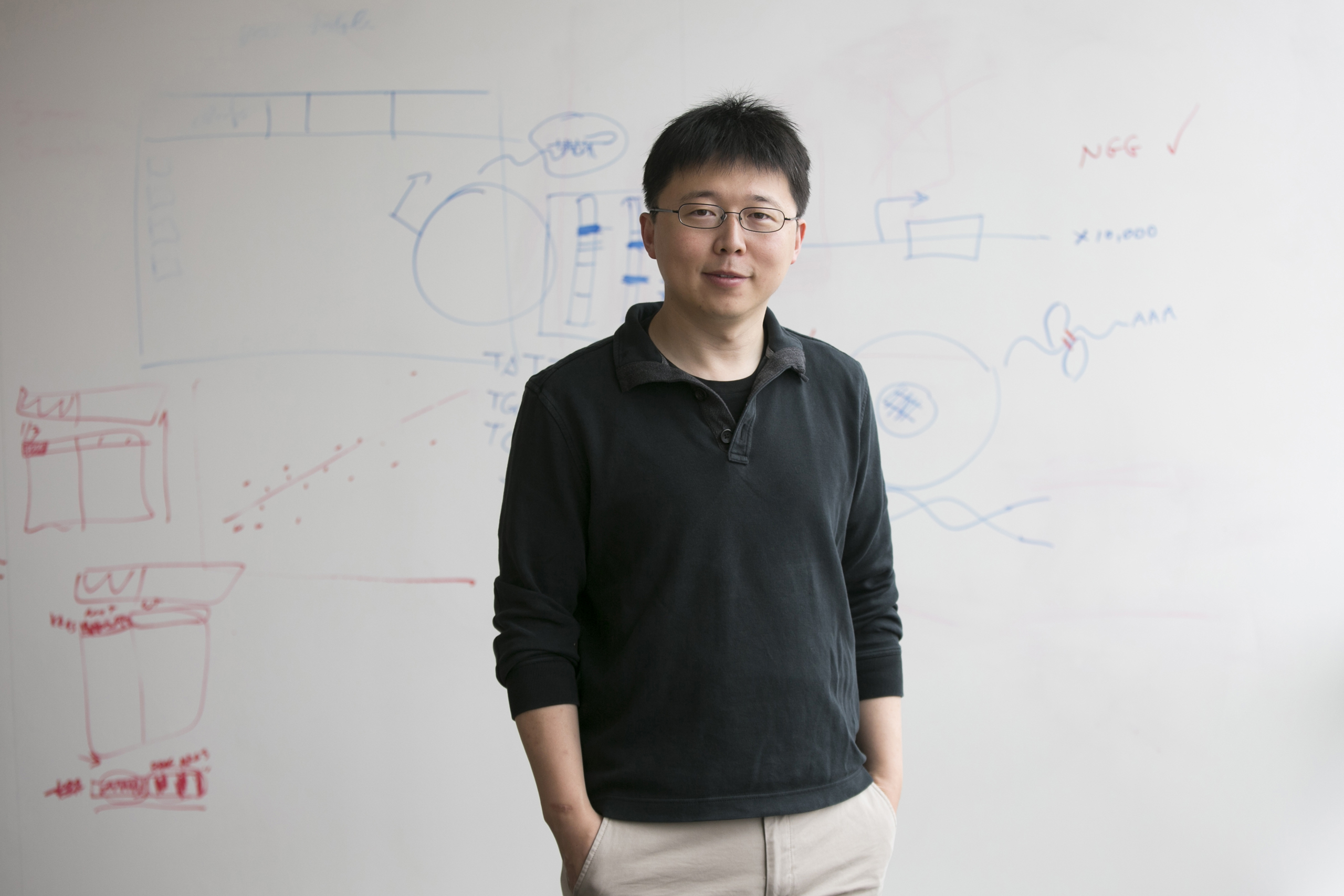Big science doesn’t always happen with a eureka! revelation. As Feng Zhang will tell you, the most life-altering technologies often have the least remarkable provenance.
The 34-year-old first heard about how certain bacteria can clip out sections of viral DNA during a run-of-the-mill lecture in 2011. The biomedical engineer had been working without success for about a year at the Massachusetts Institute of Technology and Harvard University’s Broad Institute to develop a precise way to cut and paste DNA, in order to gain unprecedented control over any living thing’s genome. He quickly realized that the bacteria were on to something.

He gave himself a crash course in the mechanism, known as CRISPR, and got to work on tweaking it to “edit” cells from mammals. It was a risk, since there was no guarantee that a system that works in bacteria, which are far simpler genetically than mammals, would work on animal cells. But within two years he published his milestone report on the first use of CRISPR to snip out with unprecedented control specific parts of DNA from both mouse and human cells. His technique helped launch a CRISPR revolution, allowing scientists to splice out everything from HIV in infected cells to genetic mutations responsible for diseases like sickle-cell anemia, schizophrenia and even cancer. The right edits to plant genomes could also create new biofuel sources and more-stable crops.
It’s changed everything, Zhang says—for him, and for science. “All of a sudden, having the ability to make very defined changes to DNA is having a catalyzing, accelerating effect on everything from medicine to basic biology to plant biology,” he says. And it all began with a routine lecture.
- Cybersecurity Experts Are Sounding the Alarm on DOGE
- Meet the 2025 Women of the Year
- The Harsh Truth About Disability Inclusion
- Why Do More Young Adults Have Cancer?
- Colman Domingo Leads With Radical Love
- How to Get Better at Doing Things Alone
- Michelle Zauner Stares Down the Darkness




